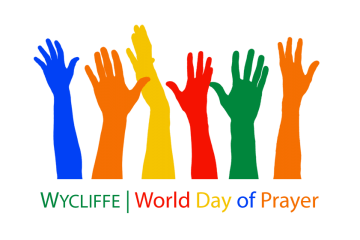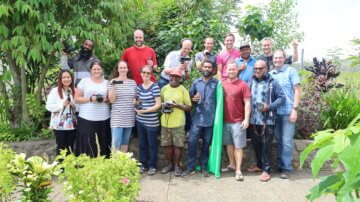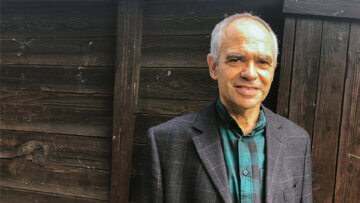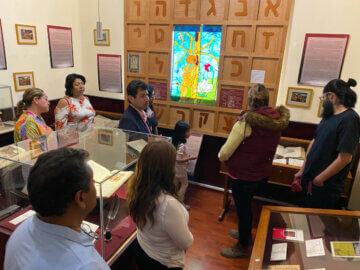Wycliffe World Day of Prayer – 11th November 2022

Trusting with Joy
The theme for the 2022 Wycliffe World Day of Prayer is Trusting with Joy.
Is the joy of the Lord our strength? Emerging out of the embers of the pandemic are wars, political instability, economic hardships and shortages of many kinds and more. Sometimes it seems like the whole world has turned upside-down and what we consider ‘normal’ is transitory at best. We may see that people around us are filled with fear, or so weary that they seemingly cannot extend grace to anyone else who is struggling. We see many kinds of suffering; illness, poverty, death, hopelessness and despair. How can we respond? How can we throw off the impact of recent years and move forward? Yet, hope can live in the worst circumstances.
We fix our eyes on Jesus who made us and saved us and offers us hope that cannot fail. We recognise that trust does not come from us finding an inner strength on our own or through gritting our teeth until something changes. Rather we trust God because of who he is, faithful, unchanging and completely trustworthy. By orienting our hearts and lives on God we find the way to trust, experiencing joy as we rejoice in who God is and finding the strength to endure in him.
Wycliffe World Day of Prayer – 11th November 2022 from Wycliffe Global Alliance on Vimeo.
This year, for the first time, as part of the Global Connect virtual gathering we will take around an hour to focus on God and pray together. Everyone connected with the Alliance is welcome to join. Afterwards we will continue to pray as we normally do during the World Day of Prayer. We spend this day in prayer together to focus on God, rejoice and be encouraged by what God has done. Let us allow him to strengthen us so that we can continue to participate in his mission.
You are invited to join our friends at Unceasing Prayer for 24 hours of prayer on the Unceasing Prayer platform running from 12 am GMT to 11:59 pm GMT on 11 November. During the day prayer leaders from some of the countries with the greatest number of languages with no Scripture will lead us in prayer for their nations. Other leaders will help us pray into strategic needs such as for Bible translation consultants. This prayer event is open to all. Invite prayer supporters and churches to sign up at UnceasingPrayer.bible.
Stories:
TRUST
JOY
PERSEVERANCE
MEDITATION
HELPFUL RESOURCES
The latest
View all articles
03/2024 Pacific: Papua New Guinea
Informing, teaching, inspiring: PNG workshop teaches video storytelling for language communities
PNG workshop teaches video storytelling for language communities
Read more
02/2024 Global
Looking ahead at 2024
As the year unfolds, we marvel at the work of God in our rapidly changing world. And, we look forward to a number of gatherings and conversations intended to draw us together.
Read more
01/2024 Americas
Telling the Bible's Story
It may come as a surprise that a museum is among the Wycliffe Global Alliance organisations.
Read more